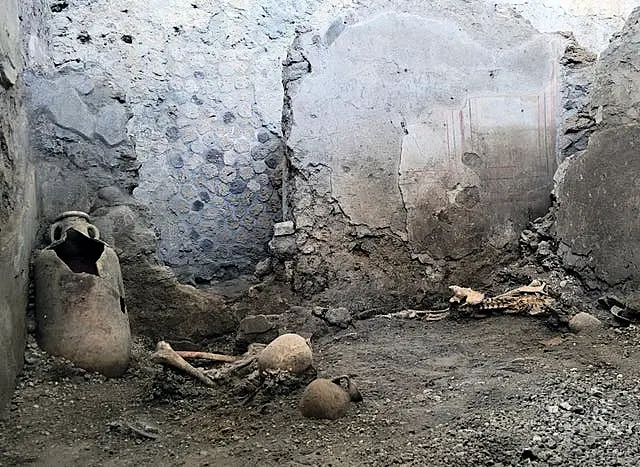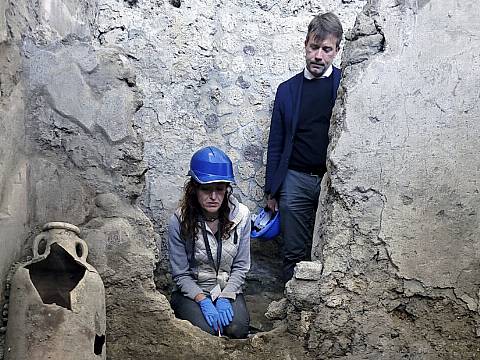The fresh discovery of two skeletons at Pompeii shows people died in earthquakes accompanying the eruption of Mount Vesuvius in the first century, experts have said.
The bones, belonging to men at least 55 years old, were found under a wall in the insula of the Casti Amanti that collapsed before the area was covered in volcanic ash.
The area was undergoing reconstruction work at the time of the eruption in 79AD – after an earthquake a few days earlier.


“In recent years, we have realised there were violent, powerful seismic events that were happening at the time of the eruption,” said Gabriel Zuchtriegel, director of the Pompeii Archaeological Park.
New archaeological techniques and methodology “allow us to understand better the inferno that in two days completely destroyed the city of Pompeii, killing many inhabitants”, he added, making it possible to determine the dynamic of deaths down to the final seconds.
More than 1,300 victims have been found in the archaeological site south of Naples over the last 250 years.







